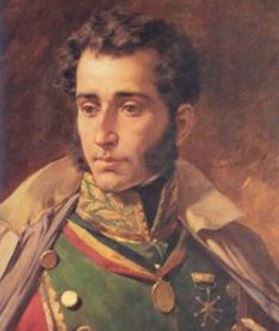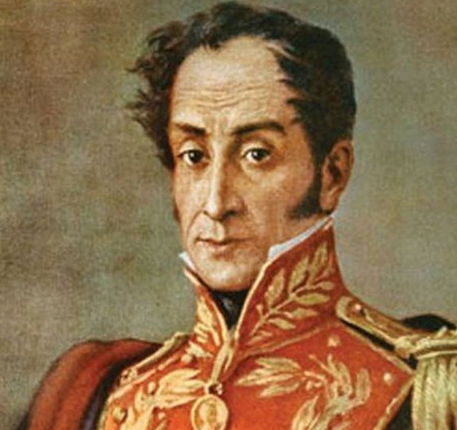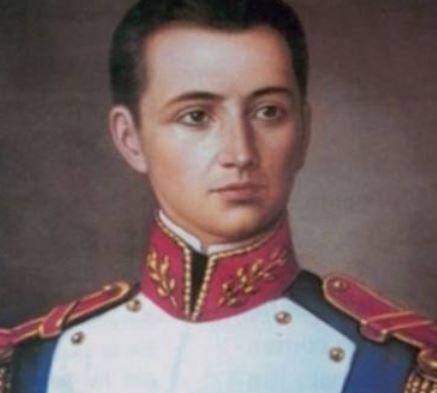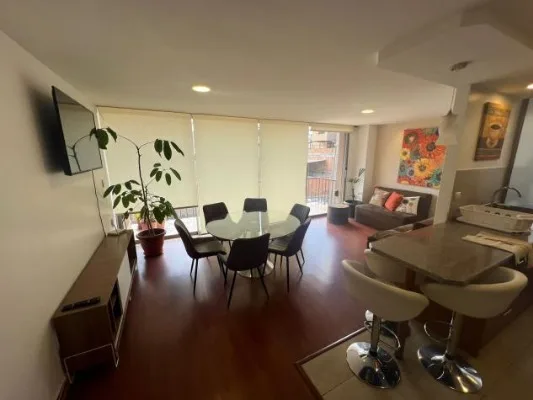Ecuador’s independence day: How a brilliant general, mercenaries and a brave Cuencano liberated Quito

The Battle of Pichincha victory was commemorated in a 2022 ceremony.
By Jerome Long

General Antonio José de Sucre
His men were exhausted, cold and wet. They had slogged over a muddy mountain trail and were suffering from altitude sickness. Many of them were raw, untested recruits. The enemy could see what he was doing and was moving to gain the higher ground. Although initially surprised by the Spanish maneuver, the general, Antonio José de Sucre, remained confident of victory. On May 24, 1822, his confidence was rewarded with a decisive victory over the Spaniards.
Through astute diplomacy, Sucre, a Venezuelan aristocrat and a distant cousin of Simon Bolivar, thought he had settled the contentious issue of whether Guayaquil would become part of Peru, or whether it would join Bolivar’s Gran Columbia. It ultimately chose the latter. Through brilliant strategic planning, Sucre liberated the cities of Cuenca and Riobomba and finally confronted the royalist forces under Field Marshal Melchor Aymerich on the slopes of the 3,500 meter Pichincha volcano overlooking the city of Quito.
Sucre’s army of just over 2,900 consisted of two mixed divisions of infantry, cavalry, and artillery. It was a diverse force that included Colombians, Peruvians, Ecuadorians, indigenous natives, and a battalion of English, Irish, and Scots veterans of the Peninsular War against Napoleon. Known as the Albion Battalion, part of Bolivar’s British Legions, the battalion, under Lt. Col. McIntosh, was assigned to guard the ammunition and supply train and to bring up the rear.
The British Legion’s had been recruited in Great Britain by Bolivar and his agents from amongst unemployed veterans of the peninsular war in which, ironically, the Spanish were their allies. When that war ended, Great Britain and the rest of Europe were swarming with soldiers who had no war to fight. The British economy could not absorb nearly 500,000 unemployed soldiers, and so, discrete efforts were made by the government to encourage those veterans to join Bolivar’s cause. It is thought that the victor of Waterloo, the Duke of Wellington, may have had a role in the scheme. The Spanish got wind of this surreptitious effort and protested, but to no avail.

Simon Bolivar
Battle was joined mid-morning when Sucre’s cavalry units encountered Aymerich’s vanguard. Sucre had ordered his Peruvian troops to occupy the slopes of the Pichincha volcano. The Spaniards observed this maneuver and countered it by moving troops of the crack Aragon battalion even higher.
Maneuver by both opponents was sharply limited by the volcanic terrain of ravines, gullies, rocks, and undergrowth. At length, however, the Peruvians, having sustained heavy casualties, their ammunition running low, began to fall back. One Peruvian battalion deserted in the face of the enemy.
At this point, Sucre ordered the Albion Battalion to climb the mountain to a position above the Spaniards’ and to attack them from the rear. Although the Albion consisted of only about 200 men, most had seen action against Napoleon and against other Spanish forces in other battles. They were not overawed or dismayed by the larger royalist force they were about to encounter.
The Albion’s furious bayonet charge stopped the Aragon Battalion in its tracks, thus giving the Colombian Magdalena Battalion and the ammunition-less Peruvians time to reinforce the Albion and to join in the rout of the Spanish army that now fled to the Quito city walls.
With his troops badly bloodied, disorganized, demoralized, and penned in, Aymerich had no choice but to surrender his army and Quito to Sucre. Within days, the government of what was then the province of Quito elected to join Bolivar’s Gran Columbia.
Sucre was 27 years old at the time.

Cuenca’s native son Abdon Calderon
In his after action report, Sucre counted 1,100 Spaniards captured, 160 officers, 14 cannon and 1,700 rifles. The Spanish suffered 400 dead and 190 wounded. The patriot army suffered 200 dead and 140 wounded. Sucre made special note of the seriously wounded Lieutenant Abdon Calderon Garaycoa who, despite his wounds, refused to leave the field and continued to lead his men. Calderon, who was a native of Cuenca, later died of his wounds. Parque Calderon is named after him.
Gran Mariscal Antonio José de Sucre y Acala, hero of Pichincha and Ayacucho, while returning home to Quito and his wife and daughter, was assassinated by embittered ex-royalists on June 4, 1830 near what is now Arboleda, Colombia. His remains are interred in the Cathedral of Quito. He was 35.
Some commentators have characterized the battle of Pichincha as “a minor clash.” However, such condescension is not justified. It is not a minor clash if the opposing army is decisively beaten and forced to surrender. Moreover, all battles are significant especially to those who participate in them.
The battle of Pichincha was the first of three major battles that ultimately led to Ecuadorian independence and the end of Spanish rule on the continent: Pichincha, Junin, and Ayacucho. Sucre either led the troops in battle himself, or he planned the campaign that led to the battle. Since Bolivar died barely six months after Sucre, it is arguable that without Sucre, Bolivar’s revolution might have failed or, at least, have been significantly delayed.





















